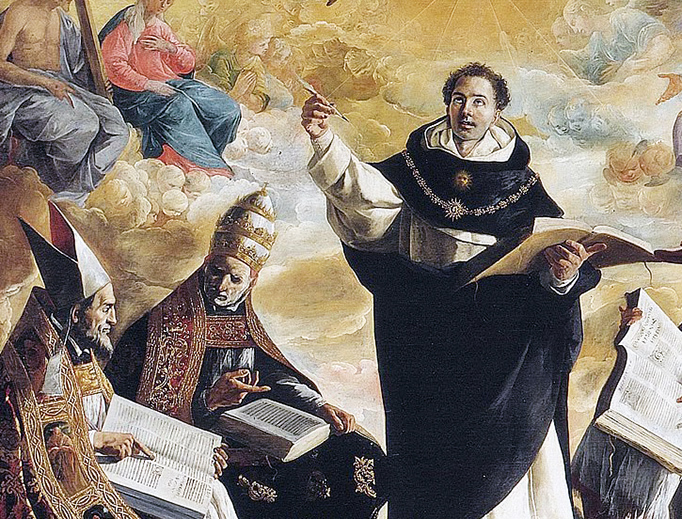Faith and Reason in the Buckeye State
The natural sciences show how the world works, but sacred science shows how to reach Heaven.

Recently, the Ohio legislature debated the relationship between faith and reason with HB 164. It is called the “Ohio Student Religious Liberties Act of 2019.” It passed the House in a 61-31 vote and is now on its way to the state Senate. Critics have argued that HB 164 allows students to be scientifically wrong, as long as they are religiously right. Proponents of the bill have stated that it is about protecting students’ religious freedom: such as being able to pray on school grounds and citing Scripture in written assignments.
Ohio introduced another bill, HB 182, in November 2019, which would keep insurance companies from covering abortions. However, it also requires doctors to re-implant ectopic pregnancies, though no such procedure exists. Republican State Rep. John Becker admitted in a May 2019 interview with the Cincinnati Enquirer that when he drafted the bill, he did not consult with doctors.
Both these bills portray faith and reason as naturally at odds with each other. Fideism is “faith alone,” even if it is irrational. On the other hand, rationalism worships “the Goddess of Reason” while dismissing faith as mythical superstition. They represent two extremes in analysis.
The remedy is the Angelic Doctor, whose feast day is Jan. 28.
At the University of Naples, St. Thomas Aquinas enthusiastically studied theology and philosophy. His mentor, St. Albert the Great, taught him science. The current furor in Ohio calls to mind Aquinas’ wise words in the Summa Theologiae, “Since Holy Scripture can be explained in a multiplicity of senses, one should adhere to a particular explanation, only in such measure as to be ready to abandon it, if it be proved with certainty to be false; lest Holy Scripture be exposed to the ridicule of unbelievers and obstacles be placed to their believing.”
The Angelic Doctor, who taught at the University of Paris, followed in the footsteps of St. Paul, who appealed to the philosophers’ reason when he preached in Athens (Acts 17:16-33). As a voracious reader, Aquinas drew on the wisdom of Athens in the writings of Aristotle, along with the Jewish and Muslim philosophers Maimonides and Avicenna. In his lifetime, he mirrored the narrator of the Book of Wisdom, who says (Wisdom 8:2-3), “I loved her (divine wisdom) and sought her from my youth, and I desired to take her for my bride, and I became enamored of her beauty. She glorifies her noble birth by living with God, and the Lord of all loves her.”
The opening question of Summa Theologiae is whether any science is necessary for humanity other than philosophical science derived from reason. St. Thomas Aquinas answers, “It was necessary for man’s salvation that there should be a knowledge revealed by God besides philosophical science built up by human reason. Firstly, indeed, because man is directed to God, as to an end that surpasses the grasp of his reason.”
He continues, “Even as regards those truths about God which human reason could have discovered, it was necessary that man should be taught by a divine revelation.”
For Aquinas, reason and the intellect are good, but not everything. The natural sciences show how the world works, but sacred science shows how to reach Heaven. He does not dismiss human reason. Reason complements divine revelation.
While some of Aquinas’ scientific views are questionable (such as the Earth remaining stationary), he was open-minded and willing to learn. St. Albert the Great instilled in him a healthy curiosity. Aquinas believed in the importance of dogma but was not dogmatic.
The Ohio bills currently subject to debate risk putting faith at odds with science and reason. When Rep. Becker wrote a May 2019 op-ed for the Cincinnati Enquirer, saying, “Even if the medical journals are wrong and HB 182 allows insurance coverage for a procedure that does not yet exist, why is that a problem? ... This bill is forward-looking regarding medical advancements.” Unsurprisingly, the media used Rep. Becker’s op-ed to further the portrayal of pro-life legislators as ignorant, cruel men who are clueless about the female reproductive system. It contrasts with Aquinas’ mentor, St. Albert the Great, whose studies in embryology advanced beyond Aristotle. Faith means engagement with reason, rather than detachment from it. Aquinas opens his Summa Contra Gentiles, saying, “Now all of human pursuits, that of wisdom is the most sublime, the most profitable, the most delightful.”
Both the Summa Theologiae and Summa Contra Gentiles argue that God is truth, according to faith and reason. Aquinas, with his five proofs, shows that Aristotle’s “Prime Mover” and the biblical God are one. Faith enriches reason with divine revelation, while reason keeps faith from being “blind” and mythical.
The current debates in the Ohio legislature demonstrate the necessity for reasonable faith and faithful reason. Aquinas, like St. Paul, defended natural law that is “written on their hearts” (Romans 2:15).
In the Summa Theologiae, Aquinas declares, “The natural law is a participation of the eternal law… and therefore endures without change, owing to the unchangeableness and perfection of the Divine Reason, the Author of nature.” For Aquinas, God was not only the God of Abraham, Isaac and Jacob, but Nature’s Author.
The Angelic Doctor’s philosophical journey inspired him to say, “For perfect happiness the intellect needs to reach the very Essence of the First Cause. And thus it will have its perfection through union with God as with that object, in which alone man’s happiness consists.”
As Our Lord told the Samaritan woman at the well (John 4:23-24), “The hour is coming, and now is, when the true worshipers will worship the Father in spirit and truth, for such the Father seeks to worship Him. God is spirit, and those who worship Him must worship in spirit and truth.”
- Keywords:
- faith and reason
- st. thomas aquinas
















